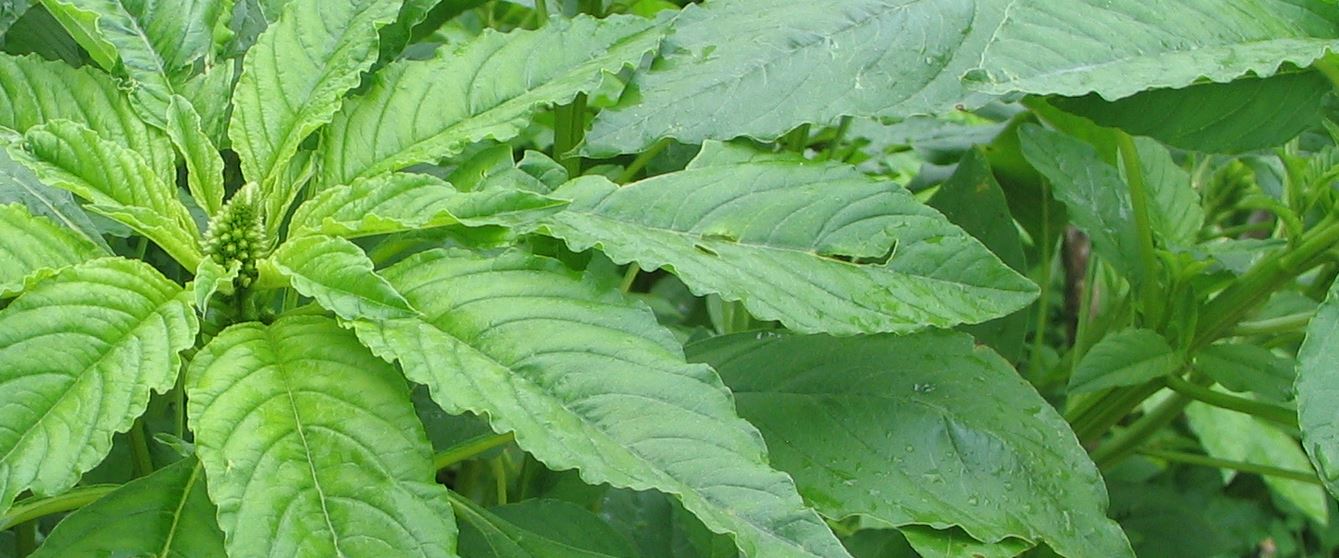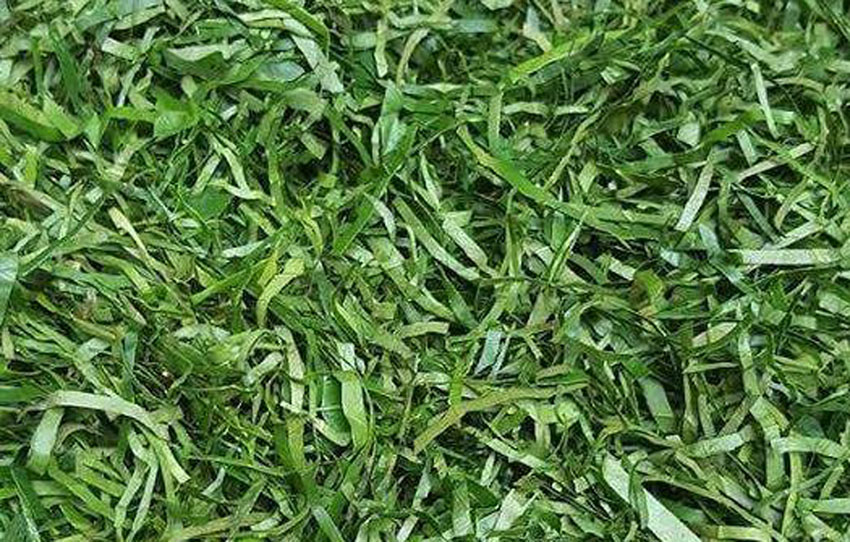Health Benefits of Amaranth Leaf: Unlocking the Power of this Superfood

Amaranth leaf, also known as chaulai or amaranthus, is a nutrient-rich leafy green native to the southern part of West Africa and India. It is called Efo Tete in Yoruba, Inine in Igbo, and Alefo in Ghana.
Despite its ancient origins and numerous health benefits, people don't talk about amaranth anymore because people tend to like kale and spinach.
20 Health Benefits of Amaranth Leaf: Unlocking the Power of this Superfood
However, with a recent resurgence in popularity, amaranth is quickly gaining recognition as a versatile superfood with numerous health benefits. This article will explore 20 health benefits of amaranth leaf and how you can incorporate it into your daily diet.
1. Storehouse of Nutrients
Amaranth leaves have essential vitamins, minerals, and antioxidants. These food items contain significant amounts of crucial vitamins, including A, C, and K, as well as B vitamins that can boost your health.
They also have substantial minerals such as iron, calcium, magnesium, potassium, and zinc. With such a robust nutritional profile, amaranth leaves can significantly boost your overall health.
1.1 Low in Calories
A 100-gram serving of amaranth leaves contains only 23 calories, making it ideal for those looking to maintain or lose weight. With low traces of fat and no cholesterol, amaranth leaves can be a healthy addition to your diet without adding unnecessary calories.
1.2 High in Fiber
The high fiber content in amaranth leaves can contribute to overall health in numerous ways. Fiber intake can assist in weight management, reduce cholesterol, and promote healthy digestion. Consuming amaranth leaves with high fiber content can create a feeling of satiety and helps you shed pounds by preventing overeating.
2. Good for Anemics
Amaranth leaves are an excellent source of iron, which is crucial for producing red blood cells and supporting cellular metabolism. Consuming amaranth with vitamin C-rich foods can enhance iron absorption to the maximum level.
Vitamin C plays a crucial role in iron absorption into your body. Incorporating amaranth leaves in your diet, along with sources of vitamin C like lemon or orange juice, can assist in warding off anemia and insufficient iron levels.
3. Boosts Immunity
Amaranth leaves are rich in vitamin C, with a 100-gram serving to provide 70% of your daily requirement. With the ability to dissolve in water, the vitamin prevents illnesses, accelerates wound healing, and combats age acceleration or cancer emergence. By incorporating amaranth leaves into your diet, you can support your immune system and maintain overall health.
4. Rich in Vitamins
Amaranth leaves are abundant in various vitamins, offering numerous health benefits.
4.1 Rich in Vitamin A
A cup of amaranth leaves can provide 97% of your daily requirement for vitamin A, an antioxidative vitamin that supports healthy skin and proper vision. Antioxidants in amaranth leaves can safeguard the body against destruction caused by harmful free radicals. The three antioxidants in question are lutein, zeaxanthin, and beta-carotene.
4.2 Rich in Vitamin K
Regarding green veggies, amaranth leaves have the greatest vitamin K concentration. Strengthening bones and facilitating blood clotting both require the vital presence of this vitamin. Vitamin K can promote osteoblastic activity, enhance bone mass, and benefit those with Alzheimer's disease by controlling neural damage in the brain.
4.3 Rich in Vitamin B
Amaranth leaves contain several B vitamins, including folate, riboflavin, niacin, thiamin, and vitamin B6. These vitamins are essential for preventing congenital disabilities in newborn babies and maintaining optimal mental and physical health.
5. Rich in Potassium
Amaranth leaves are an excellent source of potassium, an essential mineral for maintaining good cardiac health. Potassium helps create a balanced cellular fluid environment and regulates heart rate within the human body.
6. Gluten-Free
Amaranth seeds can be ground into a protein-rich, gluten-free flour, making it an ideal food for those with gluten intolerance. By incorporating amaranth flour into your diet, you can enjoy the numerous health benefits of amaranth without worrying about gluten-related issues.
7. Rich in Protein
Both amaranth leaves and grains are rich in protein, even surpassing oats as a protein-rich grain. Plant-based protein is healthier than animal-based protein, as it often contains little to no fat and cholesterol. Consuming amaranth leaves can help suppress appetite, and the protein level in this leaf aids in weight loss.
7.1 Amaranth Leaves Contain Lysine
Amaranth leaves are a source of lysine, an essential amino acid required for energy production and calcium absorption. Lysine also promotes hair growth and healthy skin. Those suffering from hair loss or greying can benefit significantly from consuming amaranth leaves.
8. Reduces Bad Cholesterol
Consumption of amaranth leaves may aid in lowering harmful cholesterol levels that can lead to cardiovascular issues. Consumption of amaranth leaves during meals can promote sound heart health and diminish the risk of heart-related problems.
9. Rich in Calcium
Amaranth leaves are an excellent source of calcium, making them beneficial for those who have osteoporosis and other bone health problems related to calcium deficiency. By consuming amaranth leaves, you can support the health and strength of your bones.
10. Easy to Digest
Amaranth leaves are easy on the digestive system, and you can also give those recovering from an illness or fasting. They can help treat diarrhea and hemorrhages and promote healthy digestion when consumed regularly.
How to Include Amaranth Leaves in Your Diet
There are many ways to incorporate amaranth leaves into your diet, from using them in traditional Indian dishes to adding them to salads and smoothies. Here are some ideas on how to include amaranth leaves in your diet:
-
Sauté amaranth leaves with spices, garlic, and onion to create a dish called lal saag or chaulai saag.
-
Cook amaranth leaves with lentils and serve alongside rice or roti in a dish called dal saag.
-
In Andhra Pradesh, amaranth leaves are prepared with moong dal or toor dal and called thotakura pappu.
-
In Kerala, a dish called cheera thoran is made by finely chopping amaranth leaves and sautéing them with grated coconut, chilies, curry leaves, and spices.
-
In Tamil Nadu, amaranth leaves are known as keerai masial and can serve with steamed rice.
-
It is possible to eat the young and supple leaves and sprouts in salads or have their juice without any cooking.
-
In mainland China, amaranth leaves are known as yin-Tsai and can use in various soups and stir-fries.
-
Amaranth leaves, also known as "Efo tete" in Yoruba and "Aleho" in Igbo, are a common vegetable in Nigeria, and a wide range of dishes incorporate these leaves. In Nigeria, amaranth leaves are used in the Nigerian diet, from soups, stews, and sauces to incorporating them into traditional dishes like eba and pounded yam.
-
The Greeks incorporate veleta, referring to amaranth leaves, into their diet. Blend them with dandelion, mustard greens, chicory greens, olive oil, and lemon juice. The portion size of the dish is petite.
What are the side effects of using Amaranth leaves?
Amaranth leaves are generally safe for consumption and are a highly nutritious food source. However, like any other food, they may cause side effects in some individuals. Here are some potential side effects of consuming amaranth leaves:
1. Oxalate Content: Amaranth leaves contain oxalates, which can cause kidney stones in some people. Individuals with a history of kidney stones should limit their intake of oxalate-containing foods.
2. Allergies: Allergies to amaranth leaves are possible among some individuals.
If you experience symptoms such as itching, swelling, or difficulty breathing after consuming amaranth, seek medical attention immediately.
3. Digestive Issues: Eating large amounts of amaranth leaves can cause digestive issues, such as diarrhea, bloating, and gas.
4. Interference with Medications: Amaranth leaves contain high levels of vitamin K, which can interfere with blood-thinning medications. It is advisable for patients who are on blood-thinning medication to seek their doctor's opinion before ingesting amaranth leaves.
Conclusion
Amaranth leaves, and grains are considered a superfood due to their numerous health benefits for nearly every organ in the body.
Rich in protein, calcium, iron, copper, essential vitamins, magnesium, zinc, and manganese, amaranth leaves offer more nutritional value than many other leafy green vegetables.
By incorporating amaranth leaves into your diet, you can unlock their numerous health benefits and enjoy a nutrient-rich, delicious meal.




